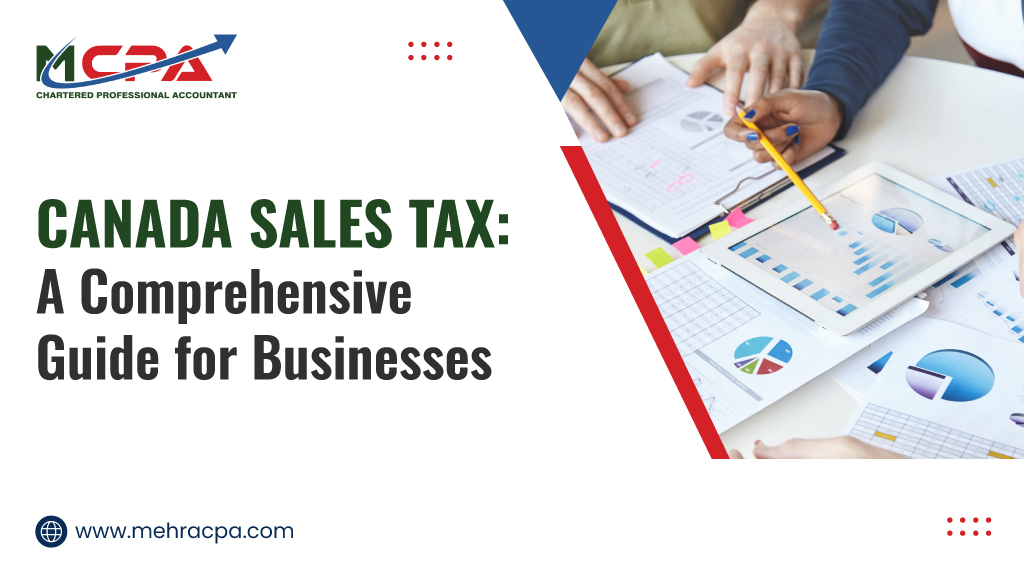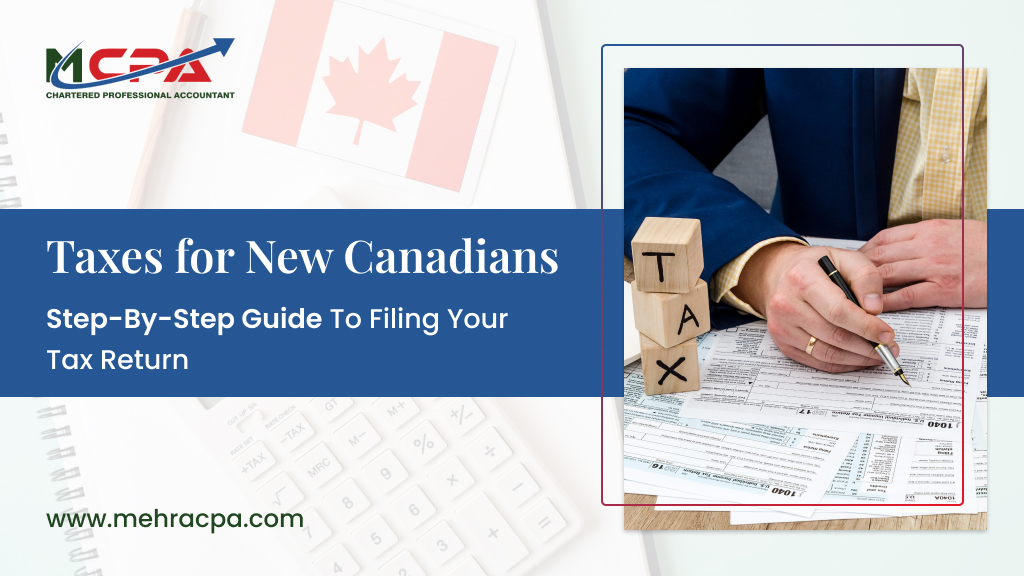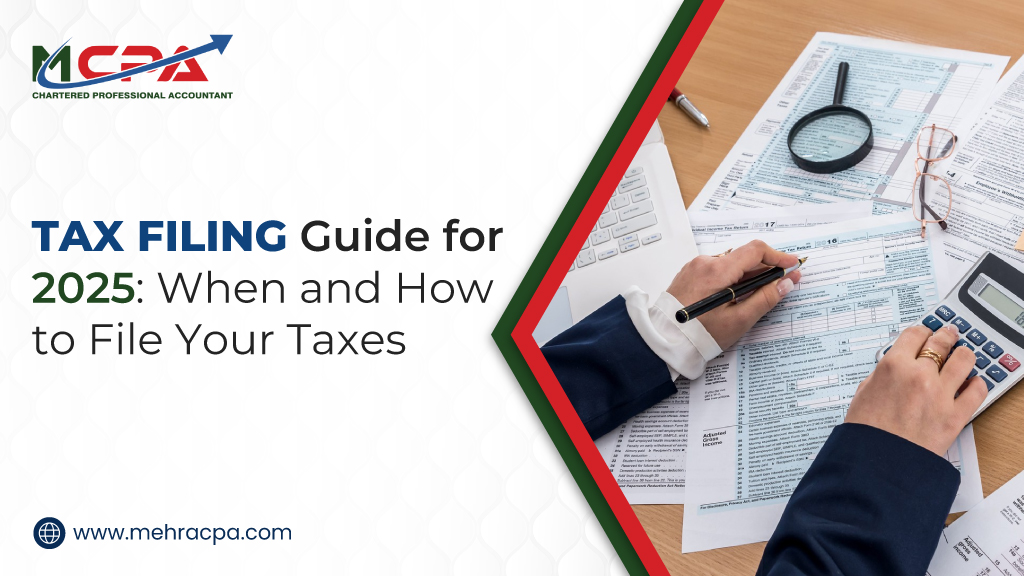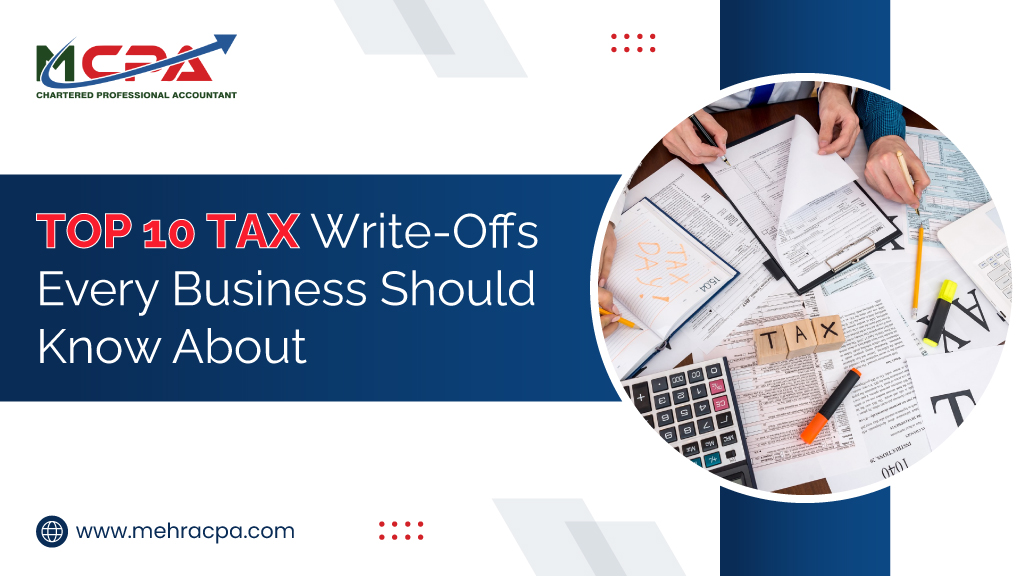
Recent Post
2025 Canadian Tax Deadlines: Everything You Need to Know
Every year, Canadians are required to file their taxes on…
Taxes for New Canadians: Step-by-Step Guide to Filing Your Tax Return
Moving to Canada is an exciting journey filled with new…
Tax Filing Guide for 2025: When and How to File Your Taxes
Filing taxes can seem like a daunting task, but with…
Top 10 Tax Write-Offs Every Business Should Know About
Running a business comes with a variety of expenses, from…
What is Sales Tax?
If you own a business in Canada, you must understand sales taxes. Sales tax is the extra amount of money added to the price of goods and services when customers make a purchase. It is collected by businesses and then sent to the government. This guide will explain everything you need to know about sales tax in Canada, including the different types, how much to charge, and how to file your taxes properly.
Types of Sales Tax in Canada
Canada has three main types of sales tax:
- Goods and Services Tax (GST) – A federal tax that applies to most goods and services across Canada. The GST rate is 5%.
- Provincial Sales Tax (PST) – A tax charged by certain provinces on top of the GST. The rate and rules vary by province.
- Harmonized Sales Tax (HST) – A combination of GST and PST that applies in some provinces.
- Quebec Sales Tax (QST) – A sales tax applied in Quebec, separate from the GST. The QST rate is 9.975%, and it is charged alongside the federal GST.
Each province determines how it administers sales tax, which means businesses operating in multiple provinces must be aware of different rules and regulations.
Sales Tax Rates by Province and Territory
Different provinces and territories in Canada have different tax rates. Below is a chart showing the tax type and rates in each region:
| Province/Territory | Sales Tax Type | Combined Tax Rate |
| Alberta | GST | 5% |
| British Columbia | GST + PST | 12% |
| Manitoba | GST + PST | 12% |
| New Brunswick | HST | 15% |
| Newfoundland and Labrador | HST | 15% |
| Northwest Territories | GST | 5% |
| Nova Scotia | HST | 15% |
| Nunavut | GST | 5% |
| Ontario | HST | 13% |
| Prince Edward Island | HST | 15% |
| Quebec | GST + QST | 14.975% |
| Saskatchewan | GST + PST | 11% |
| Yukon | GST | 5% |
Who Needs to Register for Sales Tax?
If you are a business in Canada and your total revenue exceeds $30,000 over four consecutive calendar quarters, you must register for GST/HST. Some provinces may also require registration for PST or QST, depending on their rules.
If your business earns less than $30,000, registering for GST/HST is optional. However, some businesses choose to register because they can claim back the GST/HST paid on business expenses. Claiming tax credits can help businesses reduce their costs and improve cash flow.
Steps to Register for Sales Tax
Registering for GST/HST or other sales taxes involves the following steps:
- Determine your tax obligations – Check if your province requires additional PST/QST registration.
- Apply for a Business Number (BN) – You can do this through the Canada Revenue Agency (CRA) website.
- Register online or by mail – The CRA provides online registration through the My Business Account portal.
- Collect and charge sales tax – Once registered, you must begin collecting and reporting taxes on your sales.
Businesses must ensure they follow the correct tax rules for the province they are selling to, as failure to do so could lead to penalties.
How to Charge Sales Tax
The sales tax you charge depends on where your customer is located. For example:
- If you are in British Columbia but sell to a customer in Ontario, you must charge the Ontario HST rate of 13%.
- If you sell to a customer in Alberta, only the 5% GST applies because Alberta does not have a PST.
Tax on Digital Products and Services
With the rise of e-commerce and digital businesses, many online services must also collect sales tax. If you sell digital goods (e-books, software, online courses), you may be required to charge GST/HST based on the customer’s location. International sellers who operate in Canada must also comply with these tax rules. This means if you are an overseas business selling to Canadian customers, you may need to register for GST/HST and charge the appropriate rate.
Tax-Exempt and Zero-Rated Goods and Services
Not all goods and services in Canada are subject to sales tax. Some items are tax-exempt, while others are zero-rated:
- Tax-exempt items – Businesses do not charge sales tax on these items, and they cannot claim tax credits on purchases related to them. Examples include healthcare services, educational courses, and childcare.
- Zero-rated items – Businesses do not charge sales tax, but they can claim tax credits on related expenses. Examples include basic groceries, prescription drugs, and exports.
It is important for businesses to determine if their goods or services fall into these categories, as it affects how they charge and remit taxes.
Common Business Deductions and Credits
Businesses that register for sales tax can claim tax credits on:
- Office supplies and business equipment – Any GST/HST paid on computers, office furniture, and other equipment can be recovered.
- Professional services – Fees paid to accountants, lawyers, and consultants are eligible for tax credits.
- Advertising and marketing costs – Any GST/HST paid on business promotion efforts can be deducted.
- Business travel expenses – If you travel for business purposes, sales tax paid on airfare, hotel stays, and meals may be eligible for tax credits.
- Lease payments – If your business leases vehicles, equipment, or office space, the GST/HST portion of these payments can be claimed.
These deductions help businesses reduce their overall tax burden and increase profitability.
Using Accounting Software to Manage Sales Tax
Managing sales tax can be complicated, especially for businesses that operate in multiple provinces. Accounting software like QuickBooks Online (QBO) can help in the following ways:
- Setting Up Tax Rates: The software allows businesses to enter and apply the correct GST, HST, PST, or QST rates.
- Automated Calculations: The software automatically calculates sales tax for every transaction.
- Sales Tax Reports: Businesses can generate reports that help them file their taxes correctly and on time.
- Error Prevention: Automated software reduces human errors that could lead to underpayments or overpayments.
Filing and Remitting Sales Tax
Once you collect sales tax from customers, you must file and submit it to the government. The filing frequency depends on how much tax you collect:
- Monthly: If your tax collection is over $6 million annually.
- Quarterly: If your tax collection is between $1.5 million and $6 million annually.
- Annually: If your tax collection is less than $1.5 million annually.
How to File Sales Tax Returns
- Keep detailed records – Track all sales and purchases to ensure correct reporting.
- Use the CRA online portal – Businesses can file their GST/HST returns electronically.
- Pay the collected taxes on time – Late payments result in penalties and interest charges.
- Review tax return summaries – Double-check all calculations before submission to avoid errors.
Staying Compliant with Canadian Sales Tax Laws
Understanding sales tax in Canada is essential for all businesses. Knowing the different tax types, correct rates, exemptions, and filing procedures will help businesses stay compliant and avoid penalties. Using accounting software and staying informed about tax changes can make managing sales tax much easier. If in doubt, businesses should consult a tax professional for guidance.
For businesses looking for expert assistance in managing sales tax, Mehra CPA offers professional financial and tax services. Their team of experts can help businesses navigate the complexities of Canadian sales tax, ensuring compliance and efficiency. Partnering with a knowledgeable financial service provider like Mehra CPA can save businesses time, reduce errors, and optimize tax management strategies.
By following the right procedures and staying up to date with tax laws, businesses can ensure they meet their tax obligations while optimizing their financial management.
FAQs
1. Who needs to register for GST/HST in Canada?
Businesses that earn more than $30,000 in revenue over four consecutive quarters must register for GST/HST. However, voluntary registration is available for businesses that want to claim input tax credits.
2. What is the difference between GST, PST, and HST?
GST is a federal tax (5%) applied across Canada. PST is a provincial tax charged in some provinces, while HST is a combined GST and PST applied in specific provinces.
3. Are all goods and services subject to sales tax?
No, some goods and services are tax-exempt (e.g., healthcare and education), while others are zero-rated (e.g., basic groceries and exports), meaning businesses don’t charge tax but can claim tax credits.
4. How often do businesses need to file sales tax returns?
Filing frequency depends on the amount of tax collected. Businesses may need to file monthly, quarterly, or annually based on their revenue.
5. Can businesses use software to manage sales tax?
Yes, accounting software like QuickBooks Online can automate tax calculations, generate reports, and ensure accurate filing to help businesses stay compliant.




